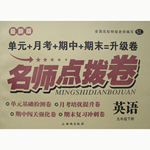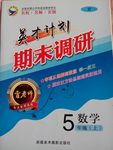题目内容
Window
Bill and John,both seriously ill,lived in the same room at Marie Hospital.John lived next to the only window of the room and was allowed to 36 in his bed and watch for an hour every day.But Bill had to spend all his time 37 on his back.
They became friends soon and talked for hours every day.They spoke of their families,their children,their hobbies,and their 38 in the American army.Each day John would sit up and 39 to his roommate Bill what he could see outside the window.
Through John’s description,Bill’s world was 40 and brightened by all the activities and colors of the outside world.The window overlooked a beautiful park with a lovely 41 ,John told Bill.Ducks played on the water 42 children sailed their model boats.And a fine view of the city skyline could be seen in the distance.As John described all these 43 ,Bill would close his eyes and 44 the picturesque scene.Bill was recovering 45 . However,John became weak day by day.
Late one night,Bill was lying in bed 46 the ceiling when John began to cough seriously.Then doctors and nurses rushed to the room.Thirty minutes later, John 47 coughing.Now,there was only silence— 48 silence.
The following morning,Bill was moved to the bed next to the window at his request.Slowly and
49 ,he supported himself up on one elbow (胳膊)to take the first look.But to his 50 ,he could see nothing but a 51 wall.
Only at that moment did he begin to realize that the pursuit(追求)of happiness was a matter of 52 .It was a positive attitude we chose to express.It was not a gift that was 53 to our doorstep each morning,nor did it come through the window.It was all inward journey.Whether a man is happy or not depends on his own thoughts 54 anything outward.
So Bill began to describe the 55 world to his new roommate that he saw through the only window of the room.
1.A.stand up B.sit up C.set up D.stay up
2.A.1ying B.depending C.going D.relying
3.A.service B.advice C.appearance D.violence
4.A.explain B.complain C.describe D.introduce
5.A.affected B.broadened C.damaged D.expanded
6.A.tower B.1ake C.statue D.hill
7.A.while B.though C.unless D.until
8.A.in addition B.in general C.in brief D.in detail
9.A.see B.remember C.imagine D.recognize
10.A.up to now B.1ittle by 1ittle C.sooner or later D.one by one
11.A.thinking about B.staring at C.holding up D.fixing on
12.A.stopped B.continued C.avoided D.survived
13.A.deadly B.dead C.breathless D.aimless
14.A.regretfully B.fortunately C.particularly D.hopefully
15.A.surprise B.delight C.relief D.anger
16.A.simple B.blank C.colored D.painted
17.A.consideration B.expression C.choice D.practice
18.A.de1ivered B.decorated C.devoted D.determined
19.A.more than B.better than C.other than D.rather than
20.A.friendly B.yearly C.1ively D.1ikely
1.B
2.A
3.A
4.C
5.B
6.B
7.A
8.D
9.C
10.B
11.B
12.A
13.A
14.D
15.A
16.B
17.C
18.A
19.D
20.C
【解析】 略

 名师点拨卷系列答案
名师点拨卷系列答案 英才计划期末调研系列答案
英才计划期末调研系列答案Not many people know that U.S. President Calvin Coolidge did not always live in the White House. Sometimes he lived in the nearby Willard Hotel.
Once, in the middle of a night, the President awoke to see a thief searching his clothes. Coolidge calmy spoke up from the darkness, “I wish you wouldn’t take that watch.”
“Why?” asked the shocked man.
Coolidged answered, “Take it near the window and read what is engraved on the back of it.”
The man read, “Presented to Calvin Coolidged, Speaker of the House, by the Massachusetts General Court.” He was very surprised!
“Are you President Coolidge?” he asked. He had never thought he would find the president sleeping in a hotel!
“Yes, I am” Coolidge said. Then he asked, “Why are you doing this,Son?”
The young man explained that he and a friend traveled to Washington during their college vacation. They spent all of their money and had no money to pay the hotel bill and the train tickets back to school.
Coolidge added up those fees. It came to $32. That may not sound like much now, but it was a big sum then. “I’ll give you the $32 as a loan,” the President said, “And I expect you to pay me back.”
The youth thanked him. Coolidge left him with this warning: “Son, you are a nice boy, you are better than you are acting. You are starting down the wrong road. Just remember who you are.”
It wasn’t until after the death of Mr.Coolidge that this story was allowed to come out. It was first published in the Los Angeles Times. And the most interesting of all is that the President’s notes show that the young man was indeed better than he was acting. He repaid the $32 loan in full.
of Mr.Coolidge that this story was allowed to come out. It was first published in the Los Angeles Times. And the most interesting of all is that the President’s notes show that the young man was indeed better than he was acting. He repaid the $32 loan in full.
【小题1】.The president stopped the youth from stealing the watch because
| A.It was his favorite watch. |
| B.He wanted to give some money to the youth |
| C.He wanted to help the young man from getting into trouble |
| D.He used it for work and daily life |
| A.the youth’s family was in financial difficulty |
| B.hotel fees were rather expensive at that time |
| C.the youth never connected with the president again |
| D.the youth learned a lesson from his experience with the president |
| A.From the president himself |
| B.From a newspaper |
| C.From the youth’s notes |
| D.From the youth himself |
| A.possessions can be given up when necessary |
| B.generosity should be encouraged in some cases |
| C.people can benefit from their unforgettable experiences |
| D.an act of kindness may change a person’s life |
The young boy saw me, or rather, he saw the car and quickly ran up to me, eager to sell his Hunches (串) of bananas and bags of peanuts.Though he appeared to be about twelve, he seemed to have already known the bitterness of life.“Banana 300 naira.Peanuts 200 naira.” He said in a low voice.I bargained him down to 200 total for the fruit and nuts.When he agreed, I handed him a 500 naira bill.He didn’t have change, so I told him not to worry.He said thanks and smiled a row of perfect teeth.
When, two weeks later, I saw the boy again, I was more aware of my position in a society where it’s not that uncommon to see a little boy who should be in school standing on the corner selling fruit in the burning sun.My parents had raised me to be aware of the advantage we had been afforded and the responsibility it brought to us. I pulled over and rolled down my window.He had a bunch of bananas and a bag of peanuts ready.I waved them away.“What’s up?” I asked him.“I … I don’t have money to buy books for school.” I reached into my pocket and handed him two fresh 500 naira bills.
“Will this help?” I asked.He looked around nervously before taking the money.One thousand naira was a lot of money to someone whose family probably made about 5,000 naira or less each year.
“Thank you, sir,” he said.“Thank you very much!”
When driving home, I wondered if my little friend actually used the money for schoolbooks.
What if he’s a swindler (骗子)? And then I wondered why I did it.Did I do it to make myself feel better? Was I using him? Later, I realized that I didn’t know his name or the least bit about him, nor did I think to ask.
Over the next six months, I was busy working in a news agency in northern Nigeria. Sometime after I returned, I went out for a drive.When I was about to pull over, the boy suddenly appeared by my window with a big smile ready on his face. “Oh, gosh! Long time.” “Are you in school now?” I asked. He nodded. “That’s good,” I said.A silence fell as we looked at each other, and then I realized what he wanted.“Here,” I held out a 500 naira bill.“Take this.” He shook his head and stepped back as if hurt.“What’s wrong?” I asked.“It’s a gift.” He shook his head again and brought his hand from behind his back.His face shone with sweat.He dropped a bunch of bananas and a bag of peanuts in the front seat before he said, “I’ve been waiting to give these to you.”
【小题1】What was the author’s first impression of the boy?
| A.He seemed to be poor and greedy. | B.He seemed to have suffered a lot. |
| C.He seemed younger than his age | D.He seemed good at bargaining. |
| A.told him his purpose of selling fruit and nuts |
| B.wanted to express his thanks |
| C.asked him for money for his schoolbooks |
| D.tried to take advantage of him |
| A.Because he had enough money to do that. |
| B.Because he had learnt to help others since childhood. |
| C.Because he held a higher position in the society. |
| D.Because he had been asked by the news agency to do so. |
| A.Brave and polite. | B.Kind and smart. |
| C.Honest and thankful. | D.Shy and nervous. |